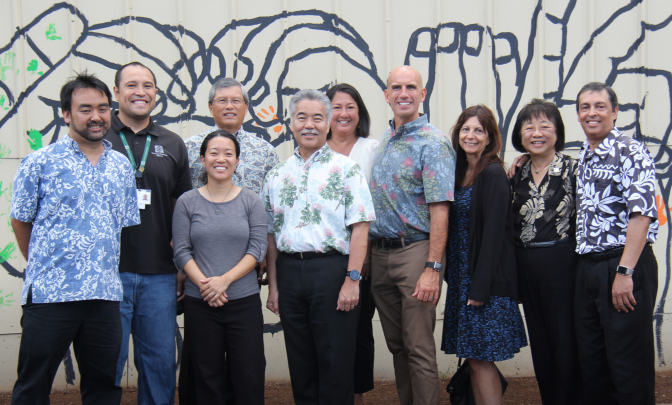By Staff Reports
(HONOLULU) – Gov. David Ige today highlighted the state’s overall progress in addressing homelessness while recognizing the first anniversary of the state’s Family Assessment Center (FAC).
The FAC temporarily houses homeless families while they are being connected to services and long-term housing with the assistance of specialists from Catholic Charities Hawai‘i. More than 90 percent of families who have stayed at the FAC and have left the facility over the past year, have been housed, or 35 families out of 38 families serviced. In addition, the average time from intake to placement is 82 days – eight days fewer than the 90-day goal the state previously set.
Gov. Ige also said the FAC reflects the state’s overall gains on homelessness, pointing to a nine percent overall decrease in homelessness between 2016-17 – the first decrease in eight years – and a 19 percent reduction in family homelessness.
“The Family Assessment Center is a game-changer that is making a difference in the lives of unsheltered families and helping to provide the stability they need to improve their lives,” Gov. Ige said.
The success of the FAC illustrates the ʻOhana Nui approach, which includes a focus on the whole family; a priority on children, particularly those between infancy and age 5; and collaboration to maximize efficiency and effectiveness.
“The Department of Human Services is proud to work hand-in-hand with the Governor’s Coordinator and Catholic Charities on long-term solutions to end homelessness,” said DHS Director Pankaj Bhanot. “The Family Assessment Center is a testament to the power of generative partnerships and a focus on connecting families to an array of services suited to their needs. We see that when we can work together to meet families where they are, families can thrive and not just survive.”
The FAC, which is operated by Catholic Charities Hawai‘i, is modeled after housing navigation centers in San Francisco. Its small population – no more than 50 people, or 12-15 households at a time – enables more individualized care. Guests are not required to have identification, which is a key obstacle for many people experiencing homelessness. Families are quickly transitioned to permanent housing or other appropriate services in 90 days or less. The facility opened on September 26, 2016.

